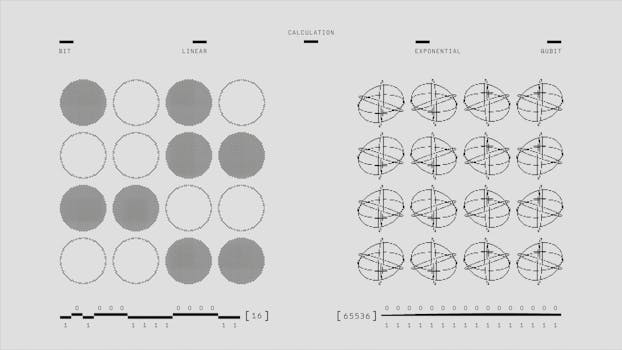
Introduction to Quantum Mechanics

Understanding quantum mechanics is essential for grasping the fundamental principles that govern our universe. The focus keyword, quantum mechanics, refers to a branch of physics that deals with the behavior of matter and energy at the atomic and subatomic levels. Unlike classical physics, quantum mechanics introduces concepts that challenge our traditional notions of reality.
The Basics of Quantum Mechanics

Quantum mechanics encompasses several core principles. One of the most intriguing is the concept of superposition, which suggests that particles can exist in multiple states simultaneously until observed. This idea is exemplified by the famous thought experiment known as Schrödinger’s cat, where a cat in a box can be simultaneously alive and dead until someone opens the box.
Another essential principle is entanglement, where two particles can become linked in such a way that the state of one instantly influences the state of the other, regardless of the distance separating them. This phenomenon has led to discussions about the nature of information and connectivity in the universe.
Implications for Reality

The implications of quantum mechanics extend beyond theoretical physics. The idea that observation affects the outcome of an event suggests that consciousness plays a critical role in shaping reality. This notion has sparked debates among scientists, philosophers, and theologians about the nature of existence itself.
Moreover, quantum mechanics has practical applications that have transformed technology, such as the development of quantum computers and advancements in cryptography. These innovations promise to revolutionize data processing and security, illustrating how understanding quantum principles can lead to tangible benefits.
The Quantum Reality Debate

As we explore the implications of quantum mechanics, a debate arises regarding the interpretation of these principles. Some physicists advocate for the Copenhagen interpretation, which posits that particles do not have definite properties until measured. Others support the Many-Worlds interpretation, suggesting that all possible outcomes occur in parallel universes. This divergence highlights the complexity of reality as influenced by quantum mechanics.
Conclusion

In conclusion, understanding quantum mechanics is crucial for comprehending the intricate fabric of reality. With its revolutionary concepts such as superposition and entanglement, quantum mechanics challenges our perceptions and invites us to rethink our place in the universe. The implications are vast, affecting not only scientific progress but also philosophical and existential inquiries. As we continue to explore this fascinating field, the boundaries of what we know about reality are bound to expand.






